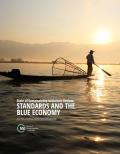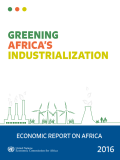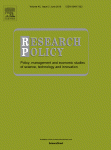In many regulated markets, private, third-party auditors are chosen and paid by the firms that they audit, potentially creating a conflict of interest. This article reports on a two-year field experiment in the Indian state of Gujarat that sought to curb such a conflict by altering the market structure for environmental audits of industrial plants to incentivize accurate reporting. There are three main results. First, the status quo system was largely corrupted, with auditors systematically reporting plant emissions just below the standard, although true emissions were typically higher. Second, the treatment caused auditors to report more truthfully and very significantly lowered the fraction of plants that were falsely reported as compliant with pollution standards. Third, treatment plants, in turn, reduced their pollution emissions. The results suggest reformed incentives for third-party auditors can improve their reporting and make regulation more effective.
The policy summary for this paper is available here.



Energy efficiency policies play a key role in the transformation to a ‘green energy economy’. The paper takes stock of the impacts of the existing energy efficiency policy instruments in Germany and reviews the energy, environmental and socioeconomic impacts of the country’s latest energy efficiency and climate strategies for the year 2020. The authors find evidence supporting the findings of other studies that enhanced green energy policies will trigger tangible economic benefits in terms of GDP growth and new jobs even in the short term. Whereas policy makers have already acknowledged and implemented this conclusion in the case of renewable energies, the paper shows that striving for more ambitious energy efficiency policies represents a similar win–win strategy, which should be exploited to a much larger extent.

The paper examines the relationship between green innovation and employment from data taken from the Spanish Technological Innovation Panel (PITEC) for period 2007–2011. The increasing relevance of environmental issues for the Spanish economy, its unemployment problem and the uniqueness in its innovation structure make it a proper and interesting context to investigate green innovation dynamics. The authors find a positive relationship between green innovation and employment, and the relationship is stronger for firms in the so-called ‘dirty’ industries. In addition, they show that the relationship is positive for firms that introduce green innovation voluntarily, as compared to firms that introduce green innovation merely to comply with regulations. A positive and significant relationship is also found between employment and firms that report an increase in the degree of importance paid to green innovation.
